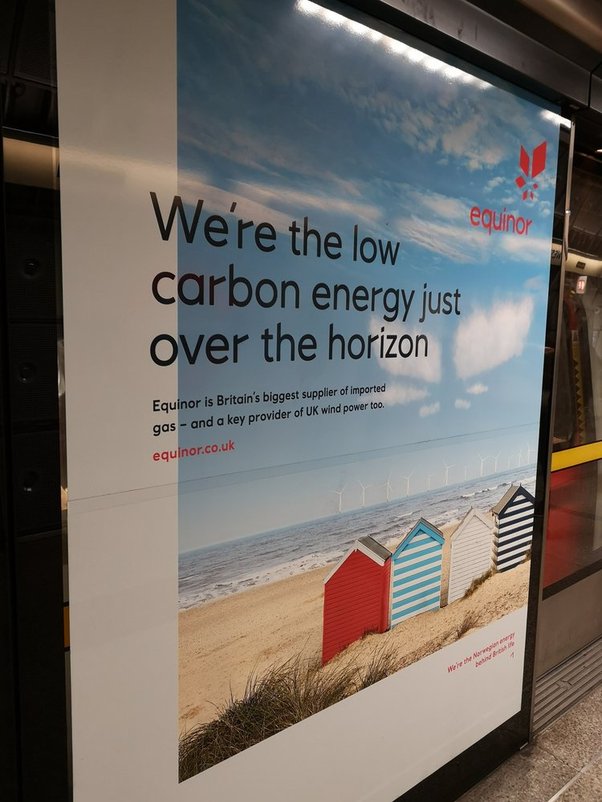Separately: New satirical Global Witness film shows UK Chancellor saying "fingers crossed" to a hundred more oil and gas licenses
As UK voters take to the polls this week, a new YouGov survey, commissioned by Global Witness, shows that 71% of UK adults think MPs should not be allowed to accept donations from oil and gas companies. Two-thirds (66%) of UK adults view MPs who take donations from oil and gas companies less favourably, with only one-fifth (20%) of respondents saying it would not impact their view of a candidate.
The survey comes as Global Witness analysis found that UK government ministers met with fossil fuel representatives on average once every working day in 2023, with contact peaking around the introduction of the Offshore Petroleum Licensing Bill in November, which the government said last year it intended to use to ‘max out’ the UK’s North Sea oil and gas reserves.
The polling comes alongside the launch of a new Global Witness film with BAFTA winning comedian Jolyon Rubinstein in which the Chancellor Jeremy Hunt agrees and replies “fingers crossed” when it’s suggested the next government should issue one hundred more oil and gas licenses. The film, in which Rubinstein poses as a concerned fossil fuel executive seeking assurances from political figures also attempts to reach a senior Labour figure to guarantee post-election lobbying access.
Recent analysis of donations to every major Westminster party since the last election by DeSmog found that oil and gas interests, highly polluting industries, and climate science deniers donated almost £10.6 million to the major parties since 2019. Over £8.4 million went to the Conservative Party, with the Lib Dems and Labour receiving £132,600 and £41,600 respectively. While the skew may reflect the fact that the Conservatives have been in government for 14 years, the anti-net zero party, Reform UK, has received more than £2 million from such donors since December 2019.
Alice Harrison, Fossil Fuel Campaigns Lead at Global Witness, said:
“The public clearly want to keep dirty oil and gas money out of politics. They understand that political parties accepting millions of pounds of fossil fuel money means that big polluters will hold sway over key decisions about the future of our planet.”
“Whoever wins on 4th July will do well to remember they govern a country where people want to see climate action and a transition away from expensive fossil fuels off the back of a crippling energy crisis that saw polluters profit and people pay. Oil and gas executives shaping climate policy is akin to tobacco determining health policy. 2024 has to be the dawning of fossil free politics – for good.”
Jolyon Rubinstein, BAFTA winning satirist with “The Revolution Will be Televised”, said:
“Although there’s comedy in the idea of an oil and gas executive chasing political figures for access, the reality is in fact far more ridiculous. The fossil fuel industry met the government every single working day last year and hardly needed to hunt down politicians on the campaign trail to secure this access.”
“The British public want the influence of oil and gas firmly out of their political system – and it’s about time they got it.”
The polling found that just one-quarter (25%) of poll respondents think the oil and gas industry should be allowed to advise ministers on energy policy, with 49% of the public saying the industry should not be allowed to advise the government.
Public attitudes towards the parties reflect these figures. When asked which political party is most closely associated with the oil and gas industry, 42% picked the Conservative Party as opposed to 12% who picked one of the Labour Party (3%), Reform UK (2%), Green Party (2%), or SNP (5%).
As well as expressing a desire to keep fossil fuel money out of politics, the polling shows a majority (51%) of UK adults want the next government’s energy policy to focus on renewables and clean energy. Only 28% want the government to pursue an energy strategy that includes both fossil fuels and renewables, and just 8% want the government focused solely on maxing out North Sea oil and gas.
Notes to editor:
- Global Witness does not support or endorse any candidate in the UK General Election
- All figures, unless otherwise stated, are from YouGov Plc. Total sample size was 2,167 adults. Fieldwork was undertaken between 6th - 7th June 2024. The survey was carried out online. The figures have been weighted and are representative of all UK adults (aged 18+).
- Media outlets looking to download the Global Witness election film can do so here for republishing here (with credit to Global Witness) https://media.globalwitness.org/?r=13907&k=fcd4863b76
- The film, can be viewed at on Jolyon Rubinstein’s X account, Instagram and TikTok.


